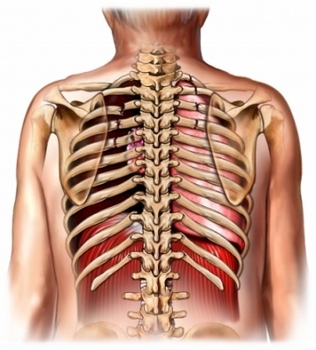Rib fracture: What's it, causes, symptoms, diagnostics, treatment, prevention

What is a rib fracture
Rib fracture – rib bone destruction. Stretching muscles and ligaments often occurs in conjunction with a fractured rib. May also be severely damaged lungs, and other organs. More than one rib fracture can cause serious damage to the internal organs.

Reasons rib fracture
Rib fractures can cause:
- A direct blow to the rib;
- Destruction chest, eg, in contact sports or a car accident;
- Severe cough, that may arise in case of problems with the light, or when you stay at high altitude;
- Rib fractures in young children are often a sign of abuse.
Risk factors for fracture rib
Factors, increase the risk of rib fractures include:
- Age: 65 and older;
- Contact sports;
- Weak bones;
- The presence of chronic cough;
- Repeated movements of the upper body athletes, engaged in certain sports:
- Throwing;
- Basketball;
- Golfing;
- Dam;
- Weightlifting;
- History of fracture ribs or chest.
Symptoms of a fracture rib
Symptoms include:
- Pain in the ribs or upper chest;
- Pain when coughing;
- Swelling and bruising in the fracture area;
- Severe pain in the area of the fracture;
- Internal bleeding;
- Pain when breathing.
Diagnosis of rib fractures
The doctor will ask about your symptoms, recent physical activity, About, how the accident occurred, will examine the chest and lung area.
Tests may include:
- Chest X-ray, to determine the presence of cracks bone and lung damage;
- CT scan – such as X-rays, wherein the computer is used, to take pictures inside the structure of the breast;
- MRT – examination, that uses a strong magnetic field and radio waves, to take pictures inside the structure of the breast.
Treatment of fracture rib
Treatment includes:
Recreation
Rest and limit physical activity, until the pain passes.
Protecting the area of injury
Your doctor may suggest wearing a bandage around the chest, to protect the edges. It is important to breathe correctly, To stay clean. After rib fractures can develop pneumonia, If you are not breathing deeply enough. If you are in contact sports, You may need to wear protection for the thorax during 6-8 weeks, until recovery.
Medicines
Your doctor may recommend taking one of the following drugs, to reduce inflammation and pain:
- Ibuprofen;
- Naproxen;
- Acetaminophen;
- Aspirin.
Physiotherapy
As the wound edges physical therapist will teach you how to breathe correctly, and maintain range of motion hand and shoulder joints.
The blockade of the intercostal nerves
Special injection of local anesthetic can temporarily relieve pain.
Ээpiduralynaya anesthesia
Sometimes a temporary epidural catheter for administering the anesthetic in the spinal cord and nerves. This can help in cases of severe fracture, and is usually performed for hospitalized patients.
Hospitalization
Hospitalization, usually, It requires only the presence of complications, such as damage to chest organs in the chest.
Prevention rib fracture
Rib fracture can not always be prevented. To reduce the risk of fracture:
- Wear protective gear, When engaged in contact sports;
- Avoid overtraining;
- We need to learn the proper technique for performing physical exercises;
- Strengthens bones:
- Eat foods high in calcium;
- Do exercises to strengthen the ribs;
- Do not smoke.
